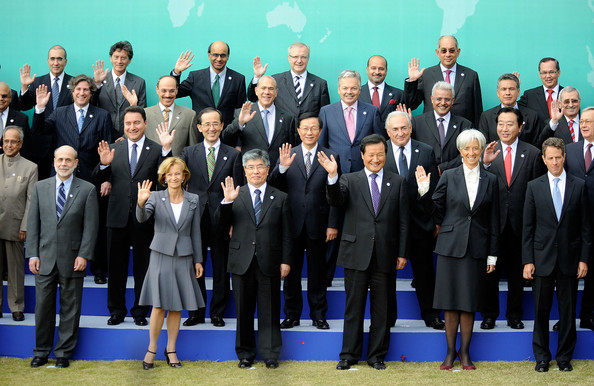Borders Group Inc. is in the final stages of preparing a bankruptcy filing, clinching a long fall for a company with humble beginnings that helped change the way Americans buy books but failed to keep pace with the digital transformation rocking every corner of the media landscape.
Borders Group Inc. is in the final stages of preparing a bankruptcy filing. Kelsey Hubbard talks with the WSJ's Mike Spector about the book retailer's long decline and how they fell behind in the e-reader race and digital space.
The troubled Ann Arbor, Mich., bookseller could file for Chapter 11 bankruptcy-protection as soon as Monday or Tuesday, paving the way for hundreds of store closings and thousands of job losses, said people familiar with the matter.
Borders has abandoned efforts to refinance its debts, and is preparing bankruptcy papers and seeking financing agreements that would keep it operating during the Chapter 11 restructuring process, the people said. Its shares tumbled 33% to 25 cents apiece in 4 p.m. New York Stock Exchange trading after The Wall Street Journal reported its plans.
"Borders is not prepared at this time to report on the course of action it will pursue," Borders said in a statement.
Borders's finances crumbled amid declining interest in bricks-and-mortar booksellers, a broad cultural trend for which it offered no answers. The bookseller suffered a series of management gaffes, piled up unsustainable debts and failed to cultivate a meaningful presence on the Internet or in increasingly popular digital e-readers.
Its online struggles proved critical as consumers became accustomed to getting books mailed to their doorsteps or downloaded to handheld electronic devices. Among Borders's biggest missteps were decisions to transfer its Internet operations to Amazon.com Inc. about a decade ago, and a stock-buyback program coupled with overseas expansion that swelled the company's debt.
Now, Borders is preparing for a costly and time-consuming trip through bankruptcy court, where it will seek to close about a third of its 674 Borders and Waldenbooks stores, the people familiar with the matter said. Borders also would cut swathes of its 19,500 staff as it attempts to reinvent itself to compete with Amazon and its hot-selling Kindle reader, and Barnes & Noble Inc., the nation's largest bookstore chain and maker of the Nook e-reader.
Whether it can restructure and emerge as a stand-alone company is unclear. Many Wall Street bankers and lawyers who have studied the chain believe it may not be able to avoid liquidation. It is expected to report more than $1 billion in liabilities in its bankruptcy petition, said a person familiar with the matter.
Online shopping, and the advent of e-readers, with their promise of any book, any time, anywhere, and cheaper pricing, have shoppers abandoning Borders and Barnes & Nobles bookstores as they did music stores a decade ago.
"I think that there will be a 50% reduction in bricks-and-mortar shelf space for books within five years, and 90% within 10 years," says Mike Shatzkin, chief executive of Idea Logical Co., a New York consulting firm. "Book stores are going away."
In towns and cities across America, consumers will soon have fewer places to discover new books. "I know that there is a lot of buying online, but I like crawling through the stacks and holding a book in my hands," says Jim Nottingham, a business development consultant who lives in Millwood, N.Y., and shops at the Borders store in nearby Mount Kisco. "I feel like Lemony Snicket in 'A Series of Unfortunate Events."'
People familiar with Borders's plans said the company wants to restructure in bankruptcy court with a goal toward remaining a viable business. The terms of Borders' bankruptcy financing are intended to help it avoid the fate of retailers such as Circuit City Stores Inc., which was forced to liquidate after seeking bankruptcy protection during the height of the financial crisis.
Borders is nearing a deal for so-called debtor-in-possession financing, which would keep the company operating in bankruptcy, the people said. The company is hearing pitches from Bank of America Corp. and General Electric Co.'s finance arm for about $450 million in financing, the people said.
Borders also is in talks with lender GA Capital LLC about converting roughly $50 million in Borders' junior debt to bankruptcy financing and contributing about $10 million in new capital, one of these people said. The company is also negotiating with other potential investors about an alternative piece of junior debt financing that would repay Borders's existing junior debt, this person said.
Among the biggest losers in the bankruptcy are shareholders, including financiers Bennett LeBow and William Ackman, whose investments in Borders likely will be wiped out. Messrs. LeBow and Ackman held more than 30% of Borders's stock as of late last year, according to Standard & Poor's Capital IQ. Mr. LeBow, who became CEO of Borders Group last year, invested $25 million last May as Borders tried to rework its finances. Mr. Ackman's Pershing Square Capital Management LP is expected to lose at least $125 million on its investment.
In December, Mr. Ackman surprised the book world by proposing that Borders bid for much bigger rival Barnes & Noble, offering to finance a deal himself. The proposal went nowhere.
Big publishers will also take a hit on books shipped and sold through the holidays. Borders in late December surprised key vendors by suspending payments. Suppliers urged the company to use bankruptcy to fix its problems; few expressed confidence in the bookseller's strategy after negotiations over outstanding debts.
A bankruptcy filing would help Amazon, Barnes & Noble and newer booksellers such as Apple Inc. and Google Inc. grab more customers. Amazon peeled off customers when Borders folded in the U.K. about a year ago. "We expect something similar will happen in the U.S.," said the head of one major publisher.
Borders's travails mark a comedown for a company with modest beginnings that grew to change the bookselling landscape. The retailer traces its roots to 1971, when two brothers, Tom and Louis Borders, opened a small used bookstore in Ann Arbor.
"What made them special was that they were a smaller family-run business," says Neil Van Uum, CEO of Joseph-Beth Booksellers Inc., which filed for Chapter 11 last year. "Smaller companies are closer to their customers than big companies."
In the 1990s, Borders spread across the U.S., part of the book-superstore movement that won shoppers by offering tens of thousands of titles in one location.
But the company didn't anticipate the looming threat of Amazon and changing consumer habits that have pushed physical stores into decline. In April 2001, Borders handed over its unprofitable Internet operations to Amazon. By the time Borders re-launched its own website seven years later, Amazon dominated the thriving online book space, building loyal relationships with millions of customers.
An aggressive stock buyback helped dress up earnings per share. But Borders took on more and more debt to fund the share purchases and its store expansion overseas, boosting total debt to $554 million for the fiscal year ended Feb. 2, 2008, from $159.4 million seven years earlier. During the same period, Barnes & Noble eliminated all its $667 million in debt.
Those dynamics caused Borders's advantages—including a savvy staff of booksellers and a wide assortment of serious tomes—to unravel.
Borders attempted to diversify its stores away from physical books to include features such as kiosks where customers could make their own CDs, download books and music, and explore their family history.
Meantime, Borders was hobbled by store leases that ranged between 15 years and 20 years. That hamstrung its ability to get out of poor locations. A revolving door of chief executives—three in the past two years plus one interim chief—whipsawed it from one business plan to another. Seeing the writing on the wall, publishers cut back shipments.
The bookseller put itself up for sale in March 2008 but failed to find a buyer. "We're small and couldn't take an enormous risk with this company," said Dominique Raccah, publisher of Sourcebooks Inc. "Some months we didn't ship at all."
Borders recently hired turnaround firm AlixPartners and has been talking to bankruptcy advisers from law firm Kasowitz, Benson, Torres & Friedman and investment bank Jefferies & Co. for several weeks.Liquidators are currently bidding to earn the right to close about 200 of Borders' stores, with an option to shutter another 50 or so on similar terms, according to people familiar with the company's plans.



![[BORDERS]](http://si.wsj.net/public/resources/images/P1-AZ471_BORDER_NS_20110211185420.jpg)



